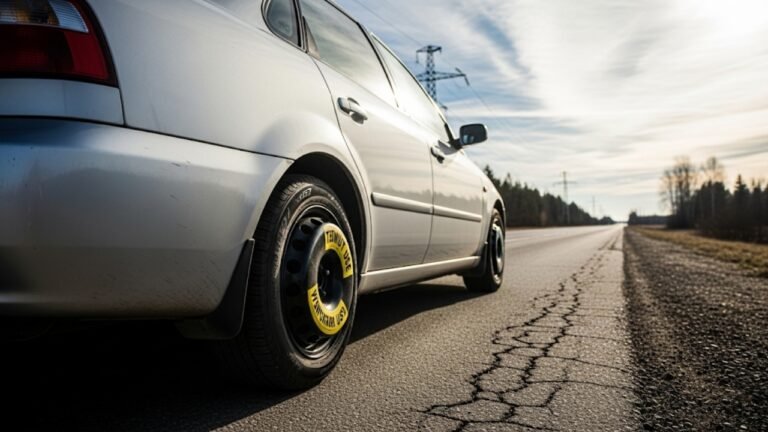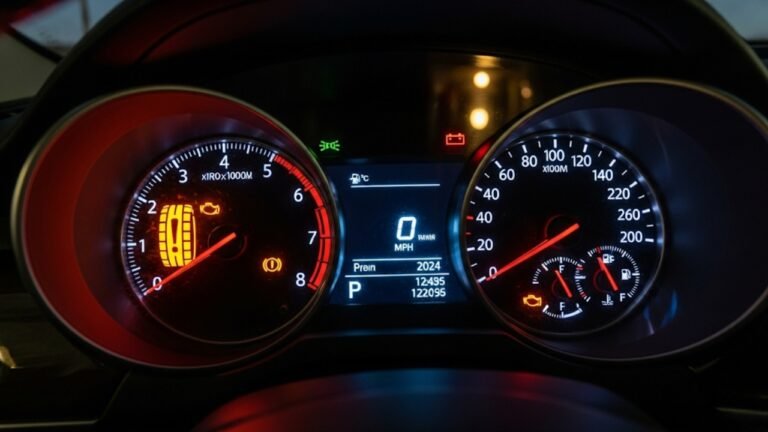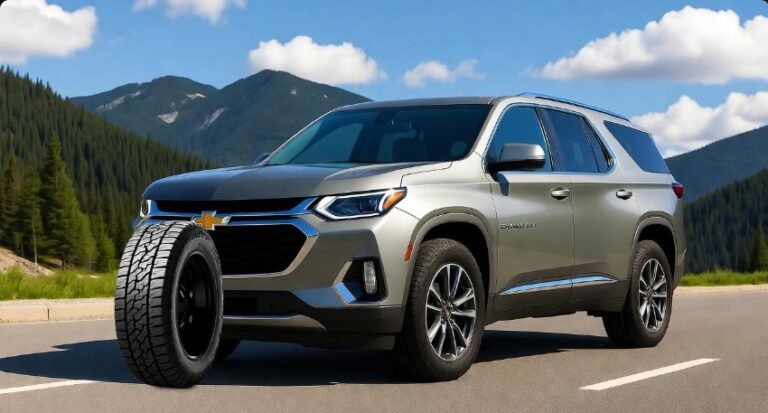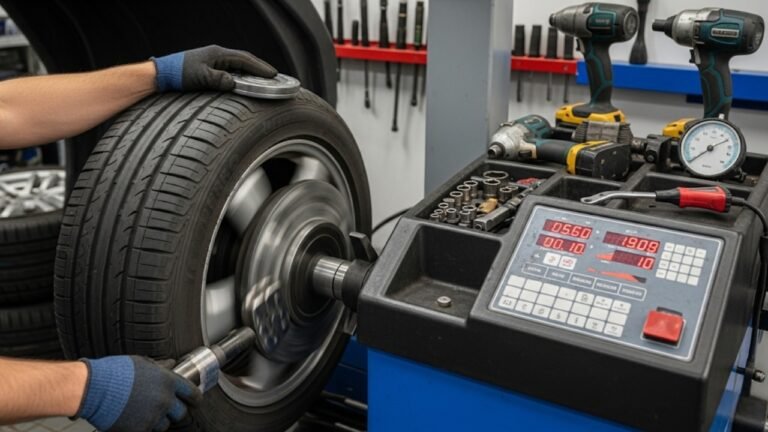Cooper vs Falken Tires: My Honest Road-Tested Review
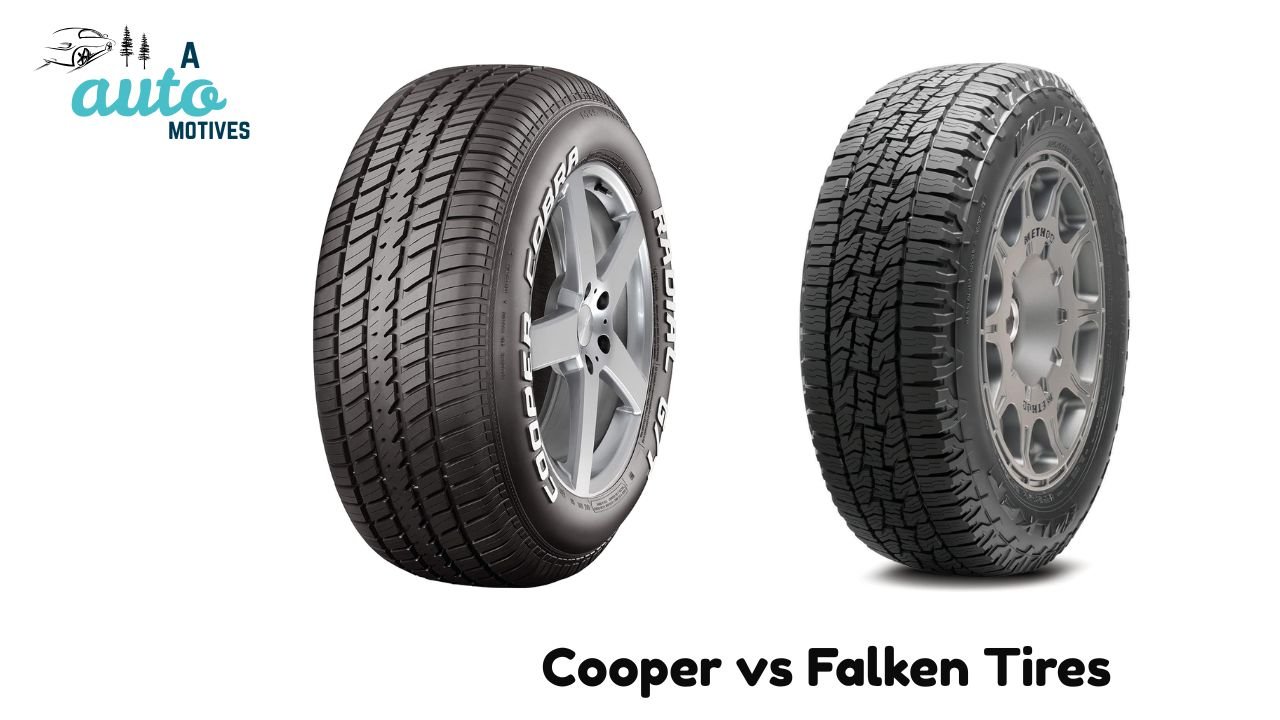
If there’s one thing years of driving across America have taught me, it’s this — tires can make or break your driving experience. You might own a powerful car or a stylish SUV, but if the tires aren’t right, every ride becomes a struggle. Whether it’s a rainy highway in Ohio or a dusty back road in Texas, the wrong tires can quickly turn comfort into chaos.
I’ve spent years testing different tire brands — from premium names to budget-friendly options. But two names that kept popping up again and again were Cooper and Falken. Both are respected, both are trusted, and both claim to offer “all-season reliability.”
So, I decided to go hands-on. I tested Cooper and Falken tires on my own vehicles over thousands of miles — city roads, highways, snow, rain, and sun. What follows is my honest, road-tested review to help you decide which one truly fits your driving style.
Cooper Tires Review
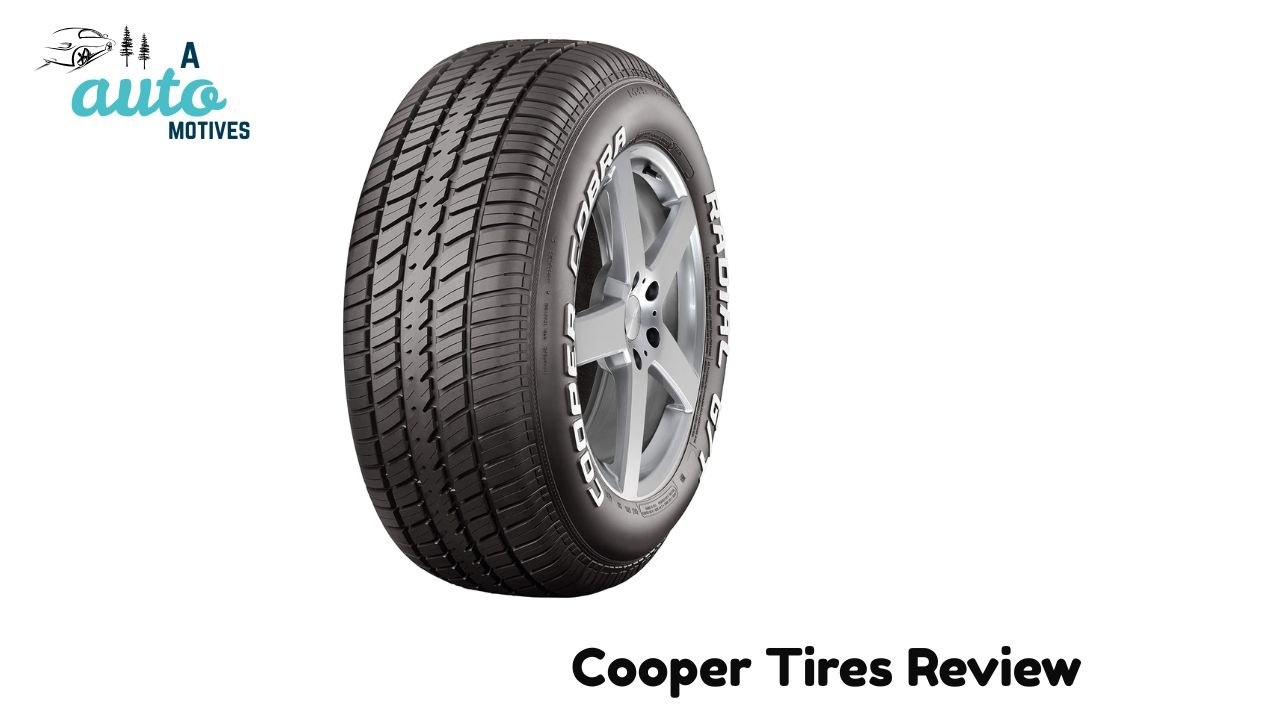
Finding the right tire feels a bit like dating — you try a few before finding the one that just clicks. For me, Cooper tires were that steady, dependable partner who never lets you down, even when the road gets rough.
I first installed Cooper Discoverer AT3 on my crossover SUV during a harsh Midwest winter. I was skeptical at first, but after a few weeks on snow-covered roads and slushy highways, I started to understand why Cooper has such a loyal following.
Real-World Performance: My Experience with Cooper Tires
Driving in real conditions always tells the truth. On paper, every tire looks good — but it’s the day-to-day grind that separates the good from the great.
Winter & Snow:
One December morning, the temperature dropped below zero, and the roads looked like polished glass. I remember taking a turn I’d normally slow down for, expecting the usual slide. But the Coopers held their ground. The traction was solid, and I felt a sense of control that instantly built trust. Compared to the budget tires I’d used before, it was night and day.
Highway & Long Trips:
During a road trip from Chicago to Denver, I noticed something remarkable — the ride felt smoother than expected. At 75 mph, road noise stayed low. Even after 500 miles of continuous driving, the car felt stable. The fuel economy stayed consistent, which surprised me, given the rugged tread design.
City & Stop-and-Go Traffic:
In urban settings, Cooper tires felt responsive. Braking was quick and predictable, especially on wet roads. During heavy rain, when water pooled across intersections, I didn’t experience hydroplaning once. That gave me a kind of quiet confidence that’s hard to put into words.
Key Features That Make Cooper Tires Stand Out
Every brand claims “innovation,” but Cooper’s strength lies in practical design choices that make daily driving safer and more comfortable.
-
Tread Pattern & Grip: Deep, aggressive grooves that cut through water and grip the road.
-
Durability: My set lasted over 40,000 miles before showing noticeable wear — impressive for the price range.
-
Comfort: Not ultra-luxurious, but stable and smooth. Road hum is minimal, especially after proper balancing.
-
Weather Flexibility: Many Cooper tires, including the AT3, carry M+S (Mud and Snow) ratings — meaning they’re reliable across seasons.
What I Loved About Cooper Tires
-
Reliable Grip: Whether it’s dry pavement or light snow, traction stays dependable.
-
Long Life: Even after years of use, the tread depth remains impressive.
-
Everyday Comfort: Ideal for commuting and road trips — smooth, quiet, and predictable.
-
Value for Money: Not cheap, but you get exactly what you pay for — quality and longevity.
What Could Be Improved
Nothing’s perfect, and Cooper tires have their minor flaws too:
-
Price: Slightly higher than entry-level brands, though still more affordable than Michelin or Goodyear.
-
Deep Winter Performance: For extreme icy conditions, a dedicated winter tire still performs better.
-
Limited Retail Presence: Depending on where you live, some Cooper models can be hard to find locally.
My Verdict on Cooper Tires
If your driving mostly involves highways, city roads, and light snow, Cooper tires are an excellent match. They offer the perfect balance between performance, comfort, and longevity. For most family sedans, SUVs, and crossovers, these tires deliver reliable day-to-day dependability without breaking the bank.
When I think of Cooper tires, I think of a loyal friend — steady, practical, and always there when you need them.
Falken Tires Review
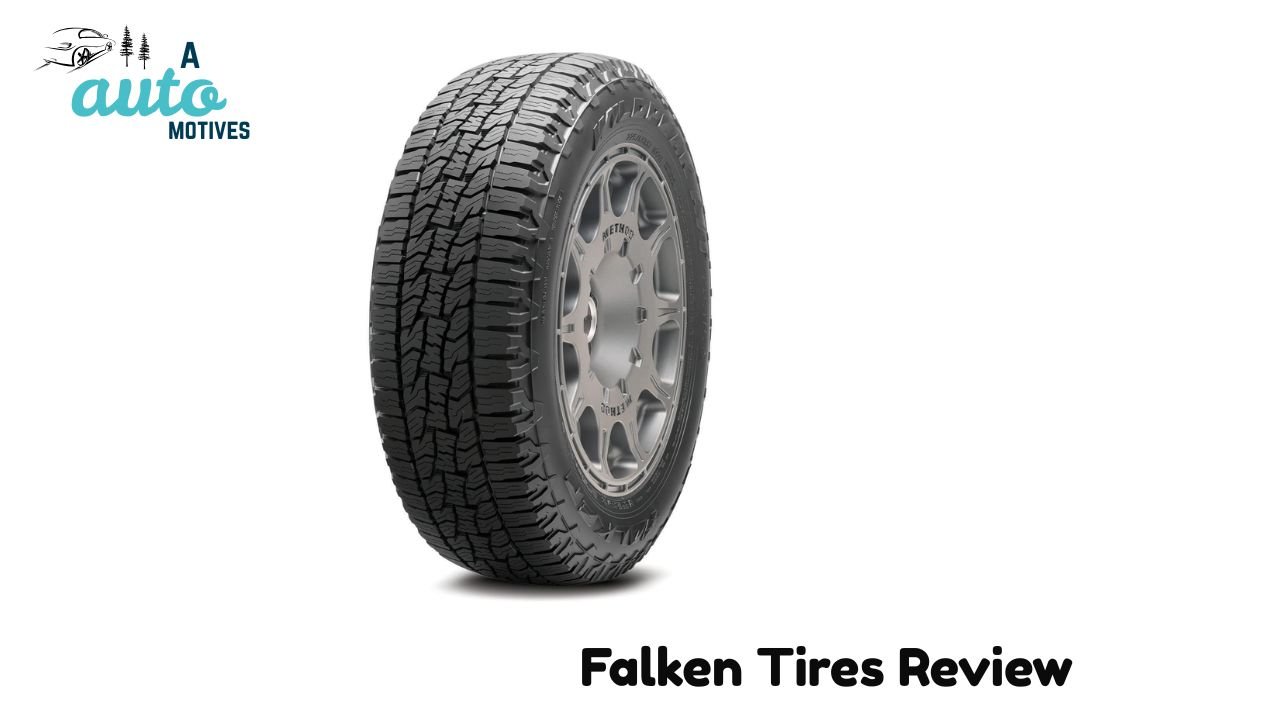
If Cooper is that dependable friend, then Falken is the exciting one — confident, sporty, and a little more refined. Falken tires often feel like they’re engineered for drivers who notice every little detail — the hum of the highway, the bite of a curve, the whisper of traction on wet asphalt.
I tested Falken WildPeak A/T Trail on a compact SUV and later tried Falken Ziex ZE960 on a sedan. Both offered a sense of precision that impressed me from the start.
Real-World Performance: My Experience with Falken Tires
Cold Weather & Snow:
One word — confidence. During a snowy morning in Michigan, the Falken tires held their grip even on light ice. The difference was subtle but noticeable. Acceleration felt smooth, and braking was sharp. Compared to the Coopers, the Falkens felt slightly more responsive in packed snow.
Highway & Long-Distance Driving:
On a long stretch from Indiana to North Carolina, I was struck by how quiet Falken tires were. The cabin stayed peaceful, even at higher speeds. It reminded me of driving a newer car. That’s how significant the noise reduction was.
City Traffic & Rainy Conditions:
Rain is the real test of tire engineering. With Falkens, I felt safe even in heavy downpours. The water channels on these tires do their job beautifully. During one sharp turn on a wet off-ramp, the tires maintained grip like a pro — no slide, no drama.
Key Features That Define Falken Tires
Falken puts a lot of research into their tread designs and compounds, and it shows in real-life use.
-
Advanced Tread Design: Deep, symmetrical grooves for maximum contact and minimal water buildup.
-
Durability: Consistent wear pattern over 50,000 miles, which speaks volumes about build quality.
-
Comfort & Quietness: Noticeably low road noise on highways.
-
All-Season Ratings: Many Falken models feature both M+S and 3PMSF (Three Peak Mountain Snowflake) ratings — suitable even for mild snow conditions.
What I Loved About Falken Tires
-
Superior Traction: Handles wet and dry roads with equal confidence.
-
Fuel Efficiency: Low rolling resistance slightly improved my gas mileage.
-
Comfort & Quiet Ride: Perfect for long drives where cabin noise can get annoying.
-
Durability: High mileage lifespan, even under mixed driving conditions.
-
Refined Feel: Offers a sportier, more precise driving experience.
What Could Be Better
-
Price: On the higher end compared to mid-range brands like Cooper.
-
Extreme Winter Use: Performs well in light snow, but for deep ice, snow tires still win.
-
Availability: Some specific Falken models can be tricky to find in local stores; online is often easier.
My Verdict on Falken Tires
Falken tires feel like they were built for people who love the feel of driving. They combine performance, comfort, and a touch of sportiness that makes even daily commutes enjoyable. If you drive across varying climates or often take long trips, Falken gives you the quiet confidence you’d want from a tire.
Between the smooth ride, strong grip, and longevity, they’ve become one of my favorite choices for all-season use.
Cooper vs Falken Tires: Detailed Comparison
When you’re standing at a tire shop or browsing online, it’s easy to get lost in specs and sales pitches. But what really matters is how those tires behave in real-world conditions — on your car, in your weather, and on your roads. Here’s a direct, honest comparison of Cooper vs Falken tires, based on performance, comfort, longevity, and overall value.
1. Tread Design & Grip
Tread design is like a tire’s fingerprint — it determines how it grips, channels water, and handles turns.
Cooper Tires:
The tread blocks on Cooper tires are deep and widely spaced, which helps with off-road traction and stability on rough pavement. I found that in rain or shallow snow, Cooper tires held their ground quite well. They’re engineered to balance everyday use with occasional rough-road challenges.
Falken Tires:
Falken’s tread designs feel more refined and responsive. Their grooves are strategically shaped to cut water faster and maintain road contact, especially at high speeds. On dry pavement, the grip felt more immediate — like the tires were reading the road in real time.
Verdict:
-
Dry Traction: Falken wins — slightly sharper and sportier.
-
Wet Traction: Falken again — better water evacuation.
-
Snow Grip: Cooper performs well, but Falken has an edge with its 3PMSF rating.
Overall: Falken: 9/10 | Cooper: 8/10
2. Durability & Tread Life
You don’t want tires that wear out before you’ve had your money’s worth.
Cooper Tires:
Cooper’s strength lies in long-term durability. My set lasted over 40,000 miles and still had solid tread left. They handle rough city roads and potholes without showing premature wear.
Falken Tires:
Falken tires have a slightly longer lifespan — around 50,000 to 55,000 miles depending on driving habits. They resist uneven wear quite well, and the rubber compound feels more resistant to temperature-related cracking.
Verdict:
-
Highway Longevity: Cooper wins for toughness.
-
Mixed Condition Durability: Falken edges ahead with consistency.
Overall: Falken: 9/10 | Cooper: 8/10
3. Comfort & Noise Levels
Let’s be honest — few things ruin a peaceful drive like constant tire hum.
Cooper Tires:
The ride feels firm and stable. While not whisper-quiet, Coopers manage to absorb shocks and reduce vibrations nicely, especially on highways. For long drives, they give a comfortable, planted feeling.
Falken Tires:
This is where Falken shines. The cabin remains noticeably quieter, even on older asphalt. The smoothness of ride reminded me of premium brands that cost twice as much. On bumpy city roads, they softened impact better than Cooper.
Verdict:
-
Comfort: Falken wins by a margin.
-
Noise Level: Falken remains quieter on all surfaces.
Overall: Falken: 9/10 | Cooper: 8/10
4. Fuel Efficiency
Fuel economy is something many drivers forget to consider when buying tires — but it adds up.
Cooper Tires:
Coopers are built tough, but their thicker tread design creates slightly higher rolling resistance. This means fuel efficiency improves only modestly.
Falken Tires:
Falken’s advanced rubber compound helps reduce drag. On my highway drives, I noticed about a 2-3% improvement in fuel mileage. Over time, that makes a noticeable difference, especially if you drive long distances regularly.
Verdict:
-
Efficiency Edge: Falken takes it.
Overall: Falken: 9/10 | Cooper: 7/10
5. Weather Versatility
Both Cooper and Falken claim to be “all-season,” but how do they handle year-round weather swings?
Cooper Tires:
They stay stable through spring rains, hot summers, and light snow. The rubber compound adapts decently to temperature changes, though extreme cold can make it slightly stiffer.
Falken Tires:
Their all-weather performance feels more refined. In heat, they don’t soften or lose grip. In cold, they maintain flexibility better than Coopers. The 3PMSF rating on many Falken models adds a layer of winter confidence.
Verdict:
Both brands perform well, but Falken handles temperature swings more gracefully.
Overall: Falken: 9/10 | Cooper: 8/10
6. Longevity & Maintenance
Long-lasting tires aren’t just about tread life — it’s also about how often they need rotation, how well they resist punctures, and how they age.
Cooper Tires:
Less rotation frequency needed. They wear evenly when maintained properly and hold air pressure well. However, sidewalls may develop small cracks after several years in hot climates.
Falken Tires:
They require slightly more frequent rotations but resist punctures better. Their rubber compounds stay pliable longer, meaning fewer issues with dry rot or cracking.
Verdict:
-
Low Maintenance: Cooper wins.
-
Long-Term Durability: Falken wins.
Overall: Tie — Cooper: 8/10 | Falken: 9/10
Price & Value
Price is always part of the decision.
-
Cooper Tires: Generally more affordable, ranging from $120–$180 per tire depending on size and model. They deliver excellent value for mid-range buyers.
-
Falken Tires: Slightly pricier at $140–$200 per tire, but offer better performance and refinement.
When you compare value, it’s clear both brands serve slightly different audiences:
-
Cooper = Everyday reliability at a fair price.
-
Falken = Premium performance without luxury-level costs.
Final Recommendation: Which One Should You Choose?
If you’ve made it this far, you probably want one clear answer — Cooper or Falken?
Here’s the honest truth: both are winners, but for different reasons.
| Category | Cooper Tires | Falken Tires |
|---|---|---|
| Dry Traction | Very Good | Excellent |
| Wet Grip | Great | Outstanding |
| Snow & Ice | Decent | Strong |
| Comfort | Smooth | Quieter |
| Durability | Long-Lasting | Even Longer |
| Fuel Efficiency | Moderate | Better |
| Price | Affordable | Slightly Higher |
| Overall Rating | 8/10 | 9/10 |
Choose Cooper if:
-
You drive mostly on highways and city roads.
-
You want long tread life without overspending.
-
You prefer a solid, dependable tire for family or daily commuting.
Choose Falken if:
-
You prioritize performance, quietness, and traction.
-
You often drive in wet or changing weather conditions.
-
You’re willing to pay a bit more for refined handling and fuel efficiency.
In short:
Cooper feels like the dependable family sedan of tires — reliable, steady, trustworthy.
Falken feels like the sporty coupe — agile, responsive, and just a bit more thrilling.
Either way, you’ll be investing in safety, comfort, and confidence — and that’s worth every penny.
FAQs: Cooper vs Falken Tires
1. Are Cooper tires good for winter driving?
Yes. Many Cooper models carry the M+S rating, meaning they perform well in moderate snow. But for extreme ice or deep snow, winter-specific tires still do better.
2. How long do Falken tires last?
On average, Falken tires last 50,000 to 60,000 miles, depending on the model and driving habits. Regular rotations and proper tire pressure extend their lifespan.
3. Which tires are quieter, Cooper or Falken?
Falken tires are noticeably quieter on highways and older roads due to their advanced tread design. Cooper tires, while not loud, have a firmer ride feel.
4. Do these tires affect fuel efficiency?
Both can help improve MPG slightly, but Falken tires perform better in this area because of lower rolling resistance.
5. Which tire is best for all-season performance?
Both are great, but Falken’s 3PMSF-rated tires handle changing conditions more effectively. Cooper excels in durability and long-distance comfort.
Final Thoughts
After thousands of miles on both brands, I can say this with confidence — you can’t really go wrong with either. It all depends on what kind of driver you are.
If you want reliable, long-lasting performance at a fair price, go with Cooper.
If you prefer a refined, quieter, and more performance-driven experience, Falken is your match.
Whichever you choose, just remember this: tires aren’t just rubber circles — they’re your car’s only connection to the road. Treat them like an investment in your safety and peace of mind.

